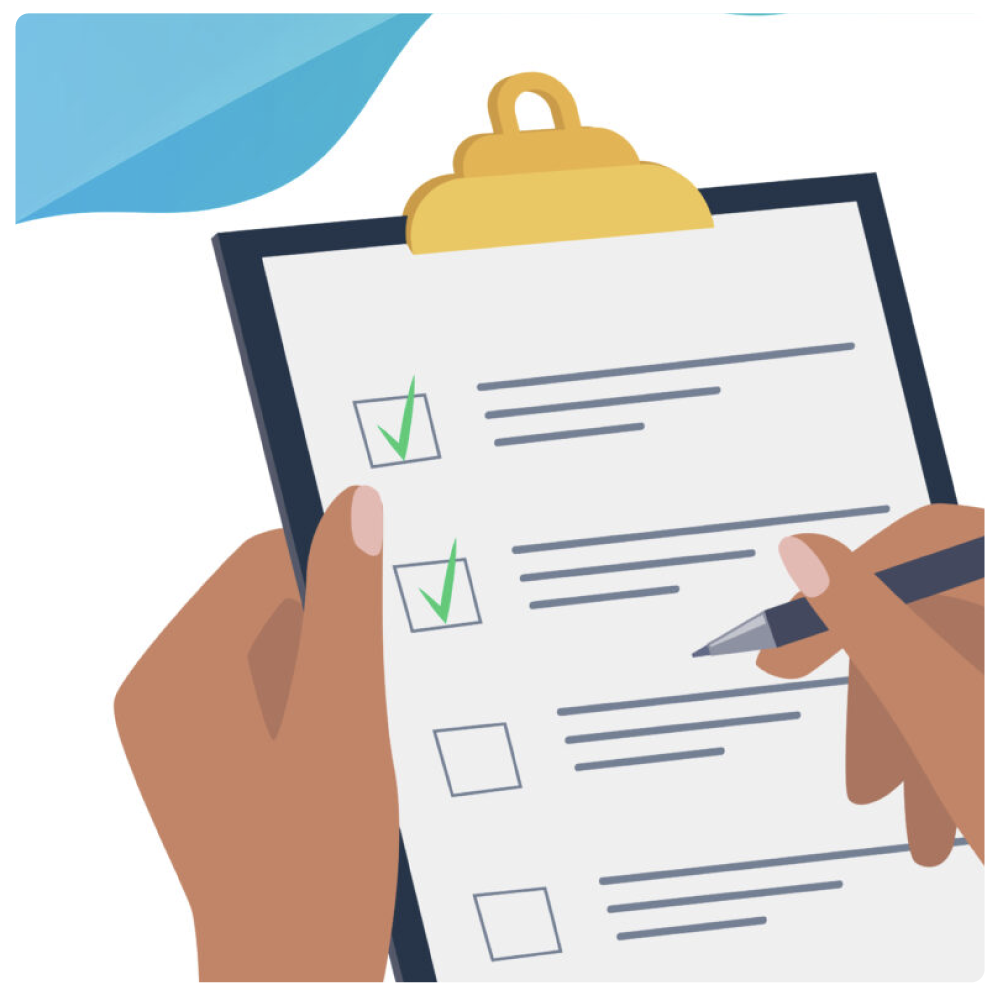The ultimate TCPA tools guide for lead generation

Navigating the complex landscape of regulatory compliance is a must for any business using telemarketing practices. Among these regulations, the Telephone Consumer Protection Act (TCPA) stands out as a critical legal framework that organizations need to adhere to diligently.
In this guide, we’re going to deep-dive into the world of TCPA tools, offering you a comprehensive understanding of why they’re essential and how they can safeguard your business from potential legal troubles and hefty fines.
Understanding the TCPA and the importance of compliance
The TCPA is a federal law enacted in the United States in 1991 by the Federal Communications Commission (FCC). The primary purpose of the TCPA is to regulate telemarketing calls, autodialed calls, pre-recorded calls, text messages, and unsolicited faxes.
Key provisions of the TCPA include:
- Do-Not-Call Registry: The TCPA established the National Do-Not-Call Registry, which allows consumers to opt out of receiving telemarketing calls. Telemarketers are required to honor the registry and refrain from calling numbers listed on it.
- Prior express written consent: Telemarketers are required to obtain prior express written consent from consumers before making autodialed or pre-recorded calls to their phone numbers.
- Opt-out mechanism: Telemarketers must provide consumers with a clear and easy way to opt out of receiving future telemarketing calls. This typically involves providing an automated opt-out mechanism, such as pressing a key or stating “stop” during a pre- recorded call.
- Faxes: The TCPA prohibits the sending of unsolicited advertisements via fax without prior express consent. It also requires that all fax advertisements include a clear opt-out mechanism.
- Enforcement: Under the TCPA, there’s a statute of limitations spanning four years. This implies that any call deemed to be in violation could potentially trigger legal action for up to four years following its placement. Furthermore, the TCPA facilitates the initiation of class action lawsuits, allowing a single non-compliant call to morph into a lawsuit encompassing millions of consumers who received similar unsolicited calls.
- Penalties: Violations of the TCPA can result in significant penalties, including fines of up to $1,500 per call or text sent in violation.
Overall, the TCPA aims to protect consumers from unwanted and intrusive telemarketing practices and to ensure their privacy rights are respected around data sharing and opt-outs in the context of telephone communications.
What are TCPA tools?
TCPA tools are solutions designed to help businesses comply with TCPA regulations. They automate the process of ensuring that your telemarketing campaigns operate within legal boundaries, thus minimizing the risk of violations.
Using these tools is not just about avoiding penalties; it’s about building trust with your customers, respecting their data sharing and communication preferences.
Types of TCPA tools
To help manage TCPA compliance effectively, various tools have been developed. Each TCPA tool serves different purposes but ultimately has the same goal – helping you keep your business compliant.
Consent Management Platforms (CMPs)
These platforms help manage and document consumer consents and revocations, a core requirement under TCPA. They help with record-keeping requirements around prior express written consent from consumers. This documentation is invaluable during any legal scrutiny or audits to prove compliance.
CMPs enable organizations to collect, record, and manage user consent preferences across digital properties, documenting compliance with relevant marketing, advertising, sales, communication, and data privacy laws and regulations. Here are some of their key features and functionalities:
- Consent collection: CMPs provide tools for collecting user consent for data processing activities, such as tracking, analytics, personalized digital advertising, and marketing communications. This typically involves presenting users with consent request prompts or banners when they visit a website or use a mobile app, allowing them to make informed choices about their data sharing and data privacy preferences.
- Granular consent controls: CMPs offer granular consent controls that allow users to selectively opt in or opt out of specific data sharing and data processing activities. This includes the ability to control preferences for different types of cookies, advertising, third-party tracking technologies, data sharing, and marketing communications.
- Preference management: CMPs enable users to manage their consent preferences over time, allowing them to review and update their choices as needed. This may involve providing users with access to preference centers or settings pages where they can modify their consent settings and update their communication and data sharing preferences.
- Cookie consent management: CMPs assist organizations in managing cookie consent compliance (opt-in/opt-out) by providing tools for obtaining and recording user consent for the use of cookies and similar third-party tracking technologies. This includes features for categorizing cookies, obtaining explicit consent for non-essential cookies, and managing cookie preferences based on user choices.
- Consent records and auditing: CMPs maintain records of user consent actions, including consent status, preferences, notice disclosure language, and consent history. This enables organizations to demonstrate compliance with data privacy and communication regulations by providing evidence of user consent and adherence to consent preferences over time. CMPs may also offer auditing and reporting features to track consent-related metrics and generate compliance reports.
Overall, CMPs play a crucial role in helping organizations achieve compliance with privacy regulations, protect user privacy rights, and build trust with their customers by enabling transparent and user-centric approaches to data consent and privacy management.
Here are a few examples of the most popular CMPs available on the market:
- OneTrust is a leading provider of privacy management and compliance solutions, and Consent and Preferences is part of its suite of products designed to help organizations manage consent for data processing activities.
- TrustArc offers a comprehensive suite of privacy management solutions, including consent management tools that help organizations collect, manage, and demonstrate compliance with data privacy regulations.
- Osano offers a consent management platform that helps organizations collect, manage, and document user consent for data processing activities, including cookies, tracking technologies, and marketing communications.
Do Not Call (DNC) scrubbers
Amongst TCPA tools, DNC scrubbers are tools that automatically scrub your contact lists against national and state DNC registries, as well as internally maintained DNC lists. This process ensures that the contacts you’re reaching out to have not opted out of receiving telemarketing calls and texts, helping you avoid unintentional TCPA breaches.
An example of a DNC scrubber is DNCScrub® by Contact Center Compliance, a leading TCPA tools scrubber that leverages a comprehensive database of consumer contact information to enable companies to comply with the latest TCPA and DNC regulations.
But DNC compliance alone isn’t enough.
Many TCPA violations happen because businesses contact a number that’s been reassigned to a new consumer—someone who never gave consent. That’s where the Reassigned Numbers Database (RND) comes in.
The RND is a centralized FCC-authorized resource that tracks when phone numbers are deactivated and reassigned to new users. By checking your contact list against the RND, you can avoid calling or texting someone who didn’t actually opt in, even if you think you have consent on file.
Combining DNC scrubbers with RND checks gives you a stronger legal footing. It helps honor opt-outs and not mistakenly target the wrong person due to recycled numbers, two of the most common triggers for TCPA lawsuits.
LeadConduit’s TCPA tool scrubber
LeadConduit’s TCPA tool scrubber integrations quickly and accurately identify potential TCPA litigants, before performing any call or texting outreach, to help keep you out of expensive lawsuits.
You can use tools like Litigator Scrub® by Contact Center Compliance (DNC.com) – along with many other integrations and add-ons – directly within LeadConduit to review submitted records and flag numbers associated with known TCPA litigants.
LeadConduit simplifies your lead acquisition and compliance processes, allowing you to efficiently acquire customers at scale. Our customizable lead flows can analyze and filter lead data in real time, ensuring that the records you deliver meet your highest quality and compliance standards before they reach your CRM.
By integrating a TCPA tool scrubber into your LeadConduit flows, you can filter out high-risk leads and focus on building strong customer relationships.
TCPA compliance software
TCPA compliance software plays a crucial role in helping businesses navigate the complex regulatory landscape of the TCPA to help ensure that their outbound/inbound calling or texting campaigns with consumers are compliant and respectful of communication and outreach rules.
Amongst TCPA compliance tools, TrustedForm stands out by offering a suite of features designed to help businesses monitor adherence to TCPA prior express written consent requirements:
- TrustedForm Certify helps you document and record when and where prior express written consent was presented digitally.
- TrustedForm Retain allows you to store certificates that provide clear evidence of documented consent and access it when you need it for up to five years.
- TrustedForm Verify helps you mitigate risk by indicating if prior express written consent was presented in a compliant manner before a calling or texting outreach.
- TrustedForm Insights allows you to analyze and identify leads with the highest conversion potential so the leads you consider purchasing are real prospects with real intent.
TrustedForm captures explicit user consent by verifying and documenting that consent was obtained legitimately, creating a documentation of consent. This documentation can be used as proof that consent to contact was obtained, which is crucial for protecting your business in the event of a complaint or lawsuit.
TCPA compliance verification software
As January 2025 approached, businesses across industries braced for the rollout of the FCC’s new one-to-one consent requirement under the TCPA. The regulation would have mandated that each lead provide prior express written consent specifically naming the brand contacting them—a requirement that posed major scalability challenges for advertisers and lead buyers.
But just days before implementation, everything changed.
On January 24, 2025, two significant developments reshaped the compliance landscape:
- The FCC issued a 12-month delay, formally postponing the one-to-one consent mandate.
- The Eleventh Circuit Court of Appeals ruled in favor of the Insurance Marketing Coalition, declaring that the FCC lacked the authority to redefine consent requirements in the rule.
As a result, the impactful one-to-one consent requirement has been struck down and will not move forward. So, where does that leave businesses concerned about compliance? Even without the one-to-one mandate, TrustedForm Verify remains a critical solution for companies that want to lead with transparency, reduce risk, and maintain best-in-class compliance standards.
TrustedForm Verify helps businesses:
- Confirm prior express written consent was properly obtained and presented at the point of lead capture.
- Evaluate compliance consistently, eliminating the guesswork and human error that often comes with manual review processes, especially when working across multiple lead vendors.
- Increase efficiency by automating consent verification tasks, saving time while reducing exposure to regulatory scrutiny.
- Centralize data visibility to understand exactly how well each vendor is following your compliance protocols.
The FCC’s one-to-one rule may be off the table, but the stakes around TCPA compliance remain high. TrustedForm Verify equips your business with the tools to verify, document, and scale consent with confidence, giving you a real edge in a complex regulatory environment.
TCPA compliant call center software
For call centers to stay competitive and protect their brand from costly legal exposure, it’s essential to invest in TCPA compliant call center software. This type of software is specifically designed to help businesses manage and reduce risk under the TCPA, without sacrificing productivity or performance.
Whether you’re running a small outbound team or a large-scale enterprise contact center, using compliant technology is a necessity.
TCPA compliant dialer software
When evaluating TCPA compliant dialer software, there are several key features to look for:
- Human-initiated dialing: Ensure the system does not automatically dial numbers using a random or sequential number generator, which could classify it as an ATDS under the TCPA.
- Integrated Do-Not-Call (DNC) list management: Automatically flag and block calls to numbers on national and internal DNC lists.
- Time zone restrictions: Automatically enforce time-sensitive calling windows to prevent outreach during prohibited hours.
- Consent verification and documentation: Confirm and log express written consent at the point of lead capture and before outreach to protect against legal disputes.
- Preview and manual dialing modes: Allow agents to review call details and manually initiate calls to avoid automated dialing violations.
- Real-time compliance monitoring and reporting: Give admins visibility into dialing behavior and compliance adherence across campaigns.
- CRM and data platform integration: Sync with your lead management tools to ensure only compliant contacts are targeted.
The right TCPA compliant dialer software will help you streamline operations, improve lead conversion, and bolster compliance with evolving regulations. If you are unsure if the dialer software you are using or considering is compliant with TCPA, seek a legal opinion.
Bot detection tools
Bot detection tools help businesses identify and block non-human or fraudulent form submissions before they enter your workflow.
These tools analyze behavioral signals, traffic patterns, and metadata to determine whether a lead was generated by a real person or an automated script. This is crucial for TCPA compliance: Because bots cannot provide valid consent, contacting these “leads” can expose your business to significant legal risk. By filtering out fake activity at the point of capture, bot detection tools protect both your compliance posture and your operational efficiency.
ActiveProspect’s TrustedForm Bot Detection solution enhances this protection by verifying human interaction on lead forms in real time—helping you ensure that the leads you acquire are authentic, consented, and safe to contact.
Best practices for implementing TCPA compliance tools
While having the right TCPA tools is a step in the right direction, following best practices can further enhance your compliance strategy.
Regularly update contact lists
Make sure your contact lists are scrubbed regularly against DNC and RND lists and that any revocations of consent are immediately reflected in your outreach strategies.
Train your team
It’s important that not only your legal team but also your sales and marketing teams understand the importance of TCPA consent. They should be aware of how to use TCPA compliance tools effectively and understand the legal implications of their actions.
Documented internal company policy and training are important and can be part of an evidenced robust defense if there is a legal or regulatory inquiry questioning your outreach campaigns.
Audit your compliance processes regularly
Regular audits can help catch any potential compliance issues before they escalate into legal problems. They can also provide insights into how your compliance strategies can be optimized.
Document everything
From consumer consents to scrubbing records, make sure every action is documented. This data can be extremely valuable if your compliance status is ever questioned.
Final thoughts
In the fast-paced world of telemarketing, maintaining TCPA compliance is non-negotiable. Utilizing TCPA tools can significantly reduce the risk of running afoul of regulations and facing fines and legal challenges. More importantly, they help build a foundation of trust with your customers by respecting their preferences and privacy.
Implementing TCPA compliance tools, accompanied by following best practices, will put your business on the path to success while staying within the bounds of the law.










